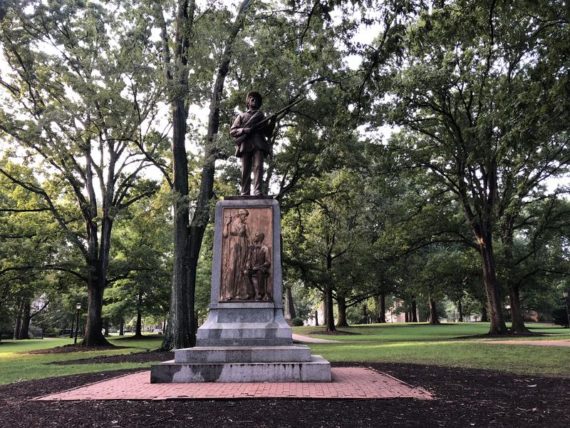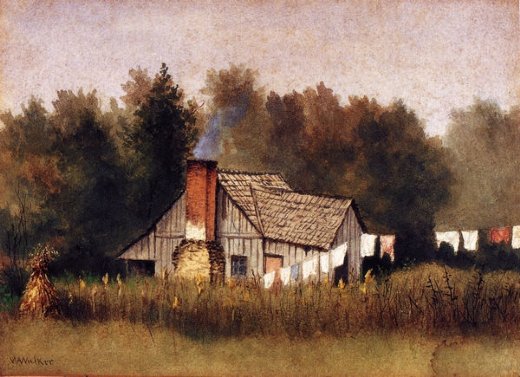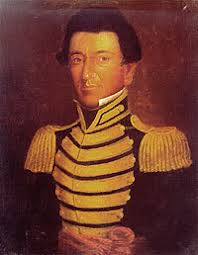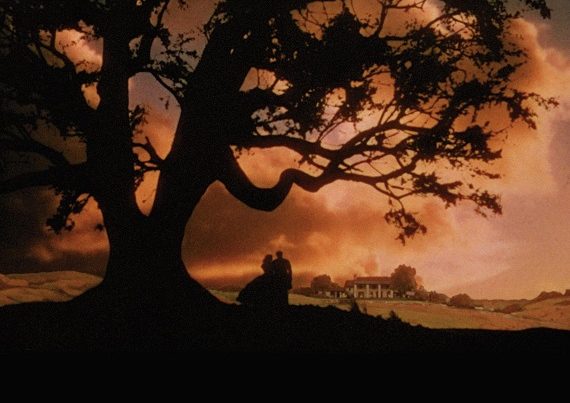In September of 1961, I left my job at a basket factory in Wilmington, North Carolina and hitch-hiked up to Chapel Hill to become a student there. I followed in the path of UNC’s very first student, a boy named Hinton James, who had famously walked those roads up from Pender County back in 1789. As befits the first student at the first State University, he did not come by carriage.
My last ride was in the cab of a well-weathered farm truck. The grizzled driver wished me well and let me out in the middle of town. “You’ll like it here,” he told me with pride. “My little grandbaby went here and she became a schoolteacher!”
I was pointed the way to Battle Dormitory which faced Franklin Street, Chapel Hill’s “main drag.” My room, 8 Battle, looked out over McCorkle Place, the “upper quad” of the campus.
It was from there, over the next two years, that I watched the changing of the seasons on the campus grounds, the blazing autumn hardwoods and those seductive dogwood and magnolia spring-times, not to mention the passing coeds with their skirts, far too long in those days.
I was told that Thomas Wolfe, the author of Look Homeward, Angel had lived in that room, next to that same window back in 1916. I could not believe my good fortune in having landed in this “Southern Part of Heaven.” Like Wolfe, I was overflowing with ideas and dreams and confusion. And like him I chased the elusive girls of the night and drank the last drop that was to be had.
The one constant outside that window, in every season, was the noble statue of “Silent Sam,” the Confederate soldier who stood vigilant watch over the campus. “Sam” represented those young students who had left the campus when “the War” came, and who went off to do their duty. It was said that UNC gave more students to the Southern Cause than any other school. It is “likely” true.
Just a few weeks after my arrival, I joined thousands of other students as we tramped through the campus to Kenan Stadium, to listen to a speech by the nation’s young President, John F. Kennedy, on the occasion of the University’s Founders Day. Then in his first year in office, JFK was in full form, at his handsome, youthful and charismatic best.
And here is how he dealt with the South’s past and the War Between the States. Here is what this liberal Democrat from Massachusetts said then of the Tar Heel State:
“There is, of course, no place in America where reason and firmness are more clearly pointed out than here in North Carolina. All Americans can profit from what happened in this State a century ago. It was this State, firmly fixed in the traditions of the South, which sought a way of reason in a troubled and dangerous world. Yet when the War came, North Carolina provided a fourth of all of the Confederate soldiers who made the supreme sacrifice in those years. And it won the right to the slogan, ‘First at Bethel. Farthest to the front at Gettysburg and Chickamauga. Last at Appomattox’.”
I was still a student at Chapel Hill when, a little over two years later, John F. Kennedy was assassinated in Dallas. It had a profound effect upon me. He had asked at Chapel Hill, echoing Goethe, “Are you going to be a hammer or an anvil?” Within days I was marching and demonstrating in the Civil Rights Movement. It was my way of dealing with his death.
The “Movement” was dangerous and heady. In the next few months, I was sucker punched, shot at, threatened often, and spent more than a few nights in jail during the sit-ins.
In the end, the Public Accomodations Act settled the issue, but those heady times were always a point of pain and pride when we all reminisced about the “the Sixties.”
I had grown up in a railroad “section house” without electricity or indoor plumbing. The folks around us were in the same shape, except that they were all black. So I guess I felt I owed this to them, to those neighbors who got the short end of things.
That idealistic leap into political reality was the beginning of something else that was pushing to the front of my passions. During the summers of 1962 and 1963, I had a job on a work train clearing right-of-way along the railroads in the deep South. I loved it, every second of it. I began to realize that my Southerness was more than just a birthright. I came to believe that it was an honor bestowed upon me by my Maker. I still feel that way.
The period just after the Civil Rights Movement was critically important to the South. I remember how proud I was when a group of kids from Charlotte went up to Boston during that city’s violent busing crisis to show the kids up there how to get along with one another. It seemed to me that left to ourselves, outside of any political climate, Southerners would get along as Southerners. For we had always shared a culture, that whole cultural menu of language and weather and food and music and work and laughter. We have far more in common than that which would separate us. That shared culture is being forgotten in these radical times.
Dr. Martin Luther King, Jr. never contemplated the destruction of historic monuments or the removal of historic symbols. His entire thrust, reiterated again and again, was for Southern white and blacks to “dine together at the table of brotherhood.” He longed for the “integration” of our different “histories” as essential to our common future. A simple acceptance of the past is all that is necessary. With that comes forgiveness. It may not be easy, but it is necessary.
Fifty plus years ago I would look out at Silent Sam from my window in Battle Dorm and try to imagine what it must have been like to have gone off to war in those days. I thought of Sam as maybe a youth from somewhere like Tarboro or Clinton or Hickory. He was of good heart, I figured, maybe 18 or 19, a bit thin, a bit afraid. He was of that tough North Carolina stock, that “salt of the earth” fellow whose character is reflected in the State’s motto: “Esse Quam Videre.” To be rather than to seem.
He could have been my great great Uncle Gabriel Jacobs, who was killed at Fraysor’s Farm pursuing McClellan in his escape to the river. He was 21. He, in turn, was named for his great great great grandfather Gabriel Jacobs, a slave who was freed by his master John Custis in Northhampton County, Virginia in 1695.
Our South is a land of many secrets and many truths.
The radical trash who tore down Silent Sam and those academic idiots who enable them are not worthy to walk on the same ground as Gabriel Jacobs. Silent Sam will rise again, and we, not they, shall overcome.







